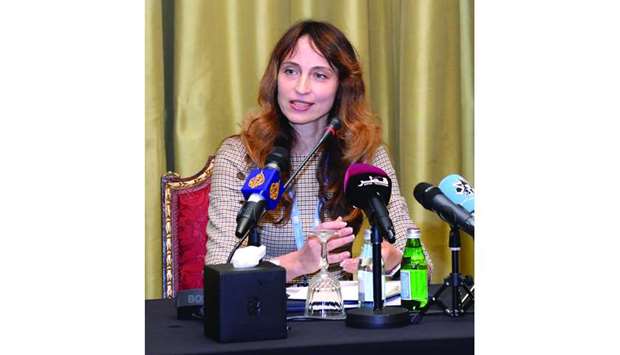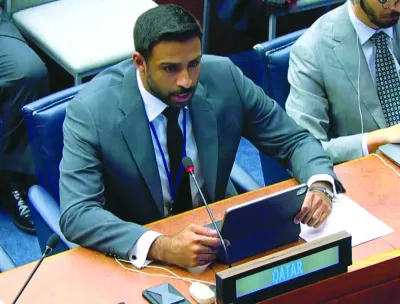A UN Special Rapporteur has urged the Saudi-led bloc to withdraw unjust measures, particularly those that violate human rights, it imposed on Qatar in June 2017.
Saudi Arabia, along with three other countries, announced the severing of diplomatic ties with Qatar on June 5, 2017, shutting their land borders, air and sea ports, and airspace to Qataris.
“The Special Rapporteur urges the Kingdom of Saudi Arabia, the United Arab Emirates (UAE), the Kingdom of Bahrain and the Arab Republic of Egypt to immediately withdraw all sanctions / measures aimed at establishing restrictions on freedom of expression, movement, access to property, trade barriers, and ban tariffs, quotas, non-tariff measures, including those which prevent financing the purchase of medicine, medical equipment, food, other essential goods for people living in Qatar in violation of international legal standards,” UN Special Rapporteur on the negative impact of unilateral coercive measures on the enjoyment of human rights, Alena Douhan, told reporters at a press briefing held at Ritz Carlton Doha yesterday.
The UN expert was sharing preliminary findings of her mission to assess the impact of unilateral sanctions imposed by the blockading countries on the enjoyment of human rights by people living in Qatar, in the four countries imposing sanctions, and other affected people.
Douhan, who was in Doha from November 1 to 12 meeting the Prime Minister and Minister of Interior, and several other senior government officials, will present a full report to the UN Human Rights Council in September 2021.
“The Special Rapporteur calls on the four states to guarantee freedom of opinion and expression by annulling all Qatar sympathy laws, to take all necessary legislative and organisational measures to guarantee that activities under their jurisdiction and control are taken without any discrimination, to not initiate hatred towards people living in Qatar; and to drop all cases related to the application of the Qatar sympathy laws to guarantee that no discrimination is applied,” she said.
The Special Rapporteur said that demands to shutdown Al Jazeera and other Qatari news organisations – “the banning of them on their territories and the criminalization of expressions of sympathy with Qatar by the Kingdom of Saudi Arabia, the United Arab Emirates, the Kingdom of Bahrain – violate the rights of freedom of opinion and expression.”
Such act, she said, “is contrary to the international human rights obligations which are legally binding for all five countries and clearly undermines freedom of expression, creating a chilling effect that stifles civil society as well as provokes uncertainty and fear among writers and journalists.”
In her report, Douhan noted that the Four States implemented a series of concerted unilateral measures against Qatar, including the expelling of almost 3,000 Qataris from their territories; and removing to Qatar livestock belonging to Qataris.
They also blocked access to Qatar-based media channels and websites; criminalised the expression of sympathy with Qatar; and allegedly sponsoring a campaign to incite hatred or distrust of Qatar and Qataris over social and traditional media with references that Qatar is involved in terrorism financing and poses threats to regional security.
“The Special Rapporteur echoes the calls of the UN Special Procedures mandate holders and UN treaty bodies to the Four States to review the definition of terrorism and terrorism financing in their laws and bring it into line with international human rights norms, and to refrain from using anti-terrorism and other forms of national security legislation to stifle peaceful and non-violent activities through the designation of people, journalists and NGOs, including Qatar Charity, as well as others not included in the UN Security Council lists,” she stressed.
“The designation of people and companies as being involved in terrorist activity can only be done bona fide and based on clear standards with due account for fair trial and judicial guarantees under the control of the UN Security Council,” Douhan said.
The Special Rapporteur expressed serious concern over "the sudden, forced departures and the restrictions on return or entry of separated families of mixed Qatari origin; suspension of the studies of Qataris enrolled in universities in Saudi, the UAE and Bahrain; Qataris compelled to abandon real and personal property; Qataris’ and Qatar residents’ loss of employment or inability to operate their businesses in those states; and Qataris prevented from continuing to receive medical treatment in these countries.”

Alena Douhan at the press briefing yesterday.


